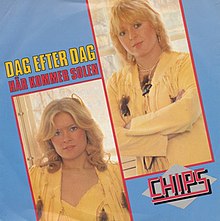EUROVISION'S 150 MOST INFLUENTIAL SONGS. This post: 1983-85. More: tomorrow.
EUROVISION
1956-2022
THE MOST
INFLUENTIAL SONGS
(in chronological order)
This
year’s Contest will see the 70th song declared a winner. Caffè Lattè lists all of the past winning entries
and other songs that have had a lasting impact on the Eurovision Song Contest.
1983
After Germany’s first Eurovision win, the Contest was held
in host city Munich. The number of competing nations increased to twenty again,
with the return of France, Italy and Greece. Ireland withdrew citing financial
issues in staging a national selection. Frankfurt had played host city back in
1957, but this was the first time Eurovision had been held in Germany after a
victory.
SI LA VIE
EST CADEAU
Corrine
Hermés
Luxembourg

Corrine Hermés’ triumph
gave Luxembourg its fifth Eurovision win. This placed the Grand Duchy in the
lead with France for the most wins. It is worth noting that France shared its
win in 1969 with 3 other countries, so Luxembourg became the first to accomplish
5 wins in its own right. “Si La Vie Est Cadeau” means “If Life Is A Gift” in
French. Unfortunately, this remains the final Eurovision winning entry for
Luxembourg.
1984
The Eurovision Song Contest returned to Luxembourg for the
first time since 1973. As the date clashed with Remembrance Day in Israel, that
country declined to compete. Greece also withdrew again. Ireland returned and
finished second with “Terminal Three”, performed by future winner Linda Martin
and written by former ESC winner Johnny Logan.
DIGGI-LOO
DIGGI-LEY
Herrey’s
Sweden

Of the 19 entries in 1984, arguably the one with the silliest title
was Sweden’s. Performed in Swedish, the song “Diggi-Loo, Diggi-Ley” proved very
popular. The three brothers helped entrench the schlager ‘formula’ adopted for many years by
the country. The winning entry proved that ABBA’s win was no fluke. Although
the song has attracted much derision since, it collected 145 points and brought
Sweden its second win.
1985
Although the 1985 Contest featured the same number of
participants, the same 19 countries were not present. Israel and Greece
returned, but The Netherlands and Yugoslavia withdrew, because the show was held
on the same day as a national holiday in the 2 countries. Gothenburg hosted Eurovision. This
remains one of the standout presentations of the Contest.
LA DET
SWINGE
Bobbysocks
Norway

Norway had endured dismal
success year after year at Eurovision, but finally secured its first victory with
a catchy upbeat song with a title that means “Let It Swing” in Norwegian. The duo consisted
of two former ESC participants: Hanne Krogh had represented Norway in 1971 and
finished 17th; Elisabeth Andreasson had performed the 1982 Swedish
entry “Dag Efter Dag” as a member of Chips and landed in eighth position. “La
Det Swinge” boasted a retro sound reminiscent of ABBA and scooped up 123 points,
leaving the favourite- Germany’s Wind- as runner-up with a score of 105 for “Fur
Alle”.







